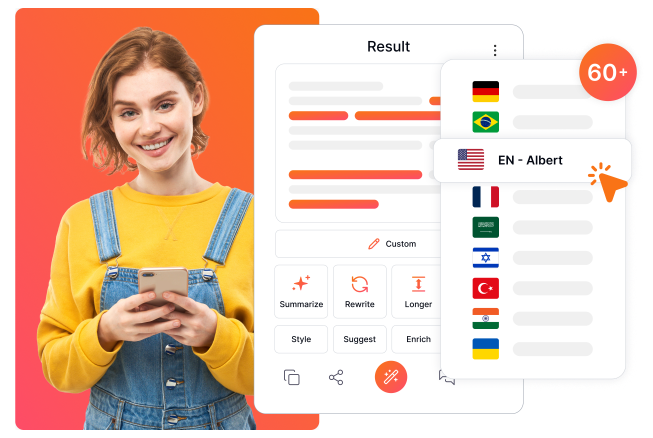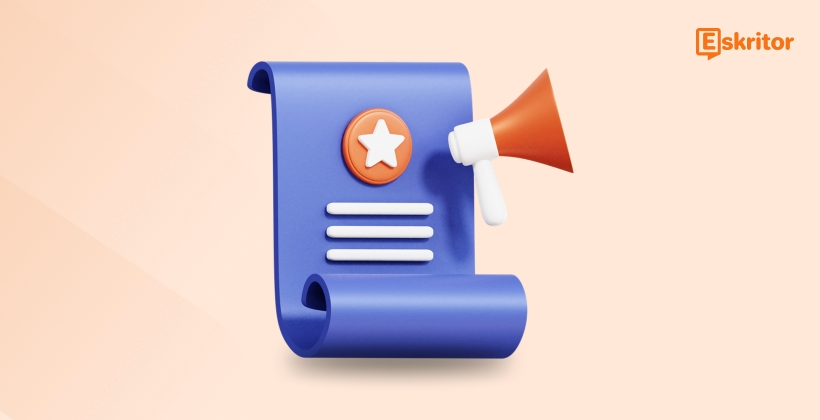AI Writing Tools vs. Human Writers – A Comparative Analysis
AI Writing Tools vs. Human Writers – A Comparative Analysis
Blog Article
The Future of AI Writing Technology Explained
Artificial intelligence (AI) writing engineering has evolved rapidly over the past decade, reshaping the way we build and communicate with written content. From grammar correction resources to AI-generated novels, the number of choices look limitless. But where precisely is that engineering going? Let's explore the inventions, problems, and possible future of ai grammar checker.

How AI Publishing Engineering Performs Today
At their core, AI writing technology relies on Natural Language Handling (NLP) and device learning. These technologies permit designs to understand, generate, and increase individual language. Tools available nowadays do well at projects like:
1. Content Generation
AI has reached a point where it could produce complete blog articles, social media marketing captions, and also information articles. Some models are designed for mimicking individual writing variations so efficiently that unique between AI- and human-written content is becoming significantly difficult.
2. Syntax and Type Idea
AI-powered writing assistants don't only check for syntax and punctuation mistakes; in addition they offer recommendations to improve tone, understanding, and syntax, making complicated writing available to a broad audience.
3. Sentiment Evaluation
AI may examine the mental tone of an item, allowing firms to assess how their communications can resonate with readers. This is especially helpful in advertising and client interaction.
The Current Developments in AI Writing Technology
Several traits are shaping the next phase of AI-powered writing resources:
• Personalization
AI publishing engineering is significantly effective at tailoring material to personal preferences. Types may adapt to a user's publishing design, ensuring the output feels authentic.
• Multilingual Capabilities
Many AI resources are growing their international reach by giving enhanced translation features and support for numerous languages.
• Increased Study Functions
AI tools today get the ability to analyze substantial amounts of knowledge and present fact-checked, well-researched writing in seconds, simplifying the procedure for experts in industries like legislation, financing, and journalism.
What the Future Holds for AI Writing Engineering
1. Increased Creativity
While current AI is adept at generating material, their imagination continues to be limited by patterns within their training data. Future AI isn't just estimated to assist but to generate original, useful works that challenge human imagination.
2. Smooth Cooperation
Envision an AI that performs along with you in real-time, doing your sentences, doing live edits, and even brainstorming ideas. AI publishing resources may soon become co-authors, allowing imagination to movement uninterrupted.
3. Ethical and Available Design
With rising problem about plagiarism, misinformation, and prejudice, designers will work toward more transparent AI teaching processes and ethical implementation. Future methods will probably provide more detailed citations and actions to make certain accountability.
Problems and Criteria
The development of AI publishing engineering is not without hurdles, including:
• Honest Problems

Who possesses content created by AI? How do we guarantee AI-generated material isn't scattering misinformation? These debates stay unresolved.
• Human-AI Harmony
Can AI complement human creativity or totally replace particular roles? Several authors and artists bother about their relevance within an AI-driven world.
• Supply Separate
Not absolutely all businesses or regions have similar access to cutting-edge AI methods, raising questions in regards to the affect with this engineering on worldwide inequality.
Adjusting the Way We Write
AI writing engineering continues to be in its infancy in comparison to its potential. Whether you're students creating documents, a material marketer targeting certain readers, or perhaps a author seeking enthusiasm, AI instruments will continue steadily to revolutionize the writing process. Another decade claims breakthroughs that mix human ingenuity with device intelligence, creating a potential where publishing is better, available, and impactful than ever before.
Report this page